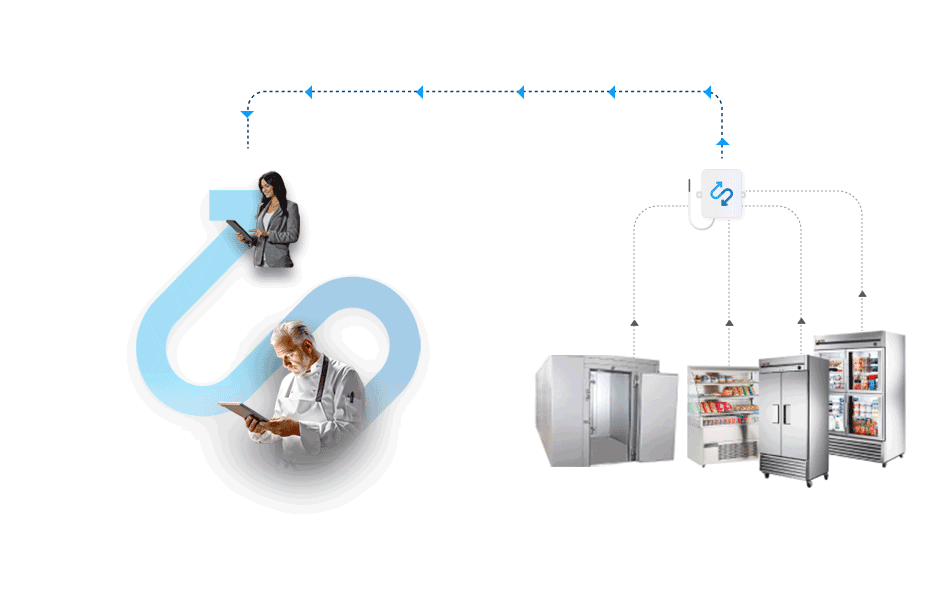Understanding Refrigerant Compliance
Refrigerants are an essential component of refrigeration systems used in various industries, including food service operations. These refrigeration systems help to keep food and other perishable items fresh, but they also pose a risk to the environment if not managed properly. Refrigerant compliance is essential to ensure that refrigeration systems are operating safely and efficiently while minimizing their impact on the environment. In this blog post, we will discuss what refrigerant compliance is, why it is important, and how to achieve it.
What is Refrigerant Compliance?
Refrigerant compliance refers to the regulations and guidelines put in place to ensure that refrigeration systems are designed, installed, and managed safely and efficiently. These regulations and guidelines are in place to protect the environment and public health by minimizing the release of harmful substances into the atmosphere.
In Canada, the federal government is responsible for regulating the use and disposal of refrigerants. The Canadian Environmental Protection Act (CEPA) and the Ozone-depleting Substances and Halocarbon Alternatives Regulations (ODSHA) outline requirements for the handling, storage, and disposal of refrigerants. These regulations aim to reduce the amount of harmful substances released into the environment.
For example, the ODSHA regulations prohibit the import, export, and manufacture of certain ozone-depleting substances in Canada. The regulations also require that refrigeration systems be leak-tested regularly and that any leaks be repaired promptly. In addition, the regulations require that refrigerants be recovered and recycled whenever possible.
Complying with refrigerant regulations is important not only to protect the environment but also to ensure the safety and efficiency of refrigeration systems. By following regulations and guidelines, we can minimize the impact of refrigeration systems on the environment while maximizing their benefits for various industries, including food service operations.
Why is Refrigerant Compliance Important?
Refrigerant compliance is essential to protect the environment and public health. Refrigerants are potent greenhouse gases that can contribute to climate change if released into the atmosphere. They can also harm the ozone layer, which protects the earth from harmful ultraviolet radiation.
Refrigerant compliance also helps to ensure that refrigeration systems are operating safely and efficiently. Proper maintenance and management of refrigeration systems can help to reduce energy consumption, prolong the lifespan of equipment, and reduce the risk of refrigerant leaks.
How to Achieve Refrigerant Compliance
Achieving refrigerant compliance involves several steps, including proper refrigerant selection, installation, maintenance, and disposal. Here are some tips for achieving refrigerant compliance:
Proper Refrigerant Selection
When selecting refrigerants for your refrigeration system, it is essential to choose those that are compliant with regulations and guidelines. Consider the environmental impact of the refrigerant, as well as its compatibility with your system.
Proper Installation
Proper installation of refrigeration systems is critical to ensure that they are operating safely and efficiently. Hire a qualified technician to install your system and ensure that it meets all regulations and guidelines.
Proper Maintenance
Proper maintenance of refrigeration systems can help to reduce the risk of refrigerant leaks and prolong the lifespan of equipment. Schedule regular maintenance checks, clean the condenser coils, check the refrigerant level, and inspect the system for any signs of wear and tear.
Proper Disposal
Proper disposal of refrigerants is essential to prevent their release into the atmosphere. Refrigerants should be recovered and recycled whenever possible. If disposal is necessary, it should be done in compliance with regulations and guidelines.
Stratosfy’s Deskless Operations Platform
Stratosfy’s Deskless Operations Platform enables food service operations teams to automate equipment temperature monitoring with wireless sensors and remote monitoring software. It provides a 360-degree view of your equipment operations, temperature measurement, and reporting, monitoring for anomalies, and tracking repair costs raised out of anomalies.
By using Stratosfy’s Deskless Operations Platform, food service operations teams can improve their operational efficiency and reduce food temperature management losses. The comprehensive sensor-based product supports both hot-holding and cold equipment units of food service operations, making it the only product that provides a 360-degree view of your equipment operations.
With Stratosfy’s Deskless Operations Platform, you can also keep an eye on equipment anomalies and corresponding repair costs, verify, analyze, compare, and share repair cost information of every piece of equipment to keep track of expenses, and make better fix-or-buy decisions. The platform enables you to automate temperature monitoring of all your refrigeration equipment, eliminate missed and error-prone manual readings, and save time and money on in-person monitoring and temperature logging of equipment. You can avoid unexpected inventory loss and costly product spoilage with real-time notifications and actionable incidents.
Conclusion
Refrigerant compliance is essential to protect the environment and public health while ensuring that refrigeration systems are operating safely and efficiently. Compliance involves proper refrigerant selection, installation, maintenance, and disposal. By following regulations and guidelines, we can minimize the impact of refrigeration systems on the environment while maximizing their benefits for various industries, including food service operations. With Stratosfy’s Deskless Operations Platform, food service operations teams can further enhance their refrigerant compliance efforts and improve their operational efficiency.
Get started with the Deskless Operations Platform with a free demo.









